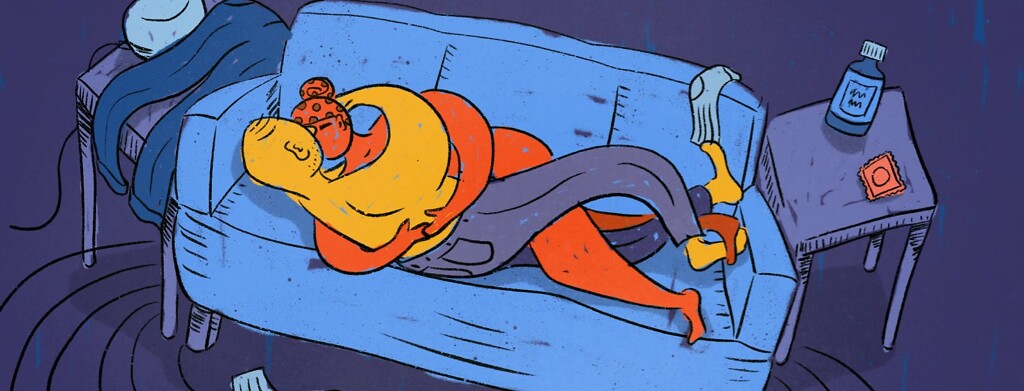Chemotherapy and Sex
Going through chemotherapy (chemo) is exhausting, emotionally and physically – there is no way around it. When you get started, you will likely have many questions about chemo. These might include:
- How long will my treatments be?
- What will the intervals in between be like?
- When will I notice symptoms?
- Will I lose my hair?
So ... can I still have sex?
One question that some people may not be comfortable asking their healthcare providers: Can I still have sex?
A general answer is yes, you can absolutely have sex while undergoing chemo. Sex can actually release brain chemicals that may relax you and help to relieve some of your pain. Sex can also be a way to bond with your partner during this difficult and stressful time.
With that being said, your interest in sex, energy levels, and discomfort can wax and wane during treatment. Be honest with your partner about your needs. It might be a time to get creative with intimacy that includes more back rubs, hand-holding, or cuddling, and less sexual intercourse.
Tips on how to stay safe
But if you are in the mood, here are some tips for how to stay safe:
- First and foremost, communicate with your partner! Share with them your desires, wants, needs, and preferences. Being open and honest can lead to deeper levels of satisfaction, both physically and emotionally.
- If your white blood cell count is low, it is best to refrain from penetrative sex in the vagina or anus (that includes fingers). These activities could increase your risk of infection. A fun substitute could be oral sex or mutual masturbation.
- Chemo drugs can stay in semen and vaginal secretions for a few days following treatment (from about 48 to 72 hours). It is best to use condoms during this time to protect your partner. You might not be feeling your best during these days, anyway.
- If you experience vaginal dryness, try using a water-based lubricant to make penetration more comfortable. You may also be helped by a vaginal moisturizer (such as Replens) or estrogen suppositories to increase moisture. Ask your healthcare provider about both.
- It might sound obvious, but if certain positions hurt, try new ones! There are a lot of innovative ways to have sex that you may not know about. Be open to using props like pillows or extra blankets for some extra leverage and comfort.
- If you are able to get pregnant or get someone pregnant, take extra precaution. Chemo can damage sperm and eggs, which can cause birth defects.
- If you have an infusion catheter (also called a port), you may still continue to have sex. Just be extra careful to not rub against it.
- To prevent a urinary tract infection, use the bathroom right after sex. Urination can help flush away the bacteria that may have entered your urethra during sex.
When should I avoid sex?
In general, it’s best to avoid having sex if you:
- Are experiencing very weak immunity. Ask your doctor if it is safe for you to cuddle or kiss during this time.
- If you have recently had surgery. It is likely best to wait until you have healed from any surgeries to have sex again.
- If you spot any unusual bumps, sores, or discharge coming from your genitals, have them looked at. It is safest to consult a doctor before you have sex.
- If you are being treated for oral cancer, ask your doctor about oral sex.
Key takeaways
- You can have sex during chemo, but it might take a little creativity. It also might not look like the sex you used to have. As hard as it can be, try to stay open to these new changes and use it as an excuse to get creative.
- There are some times when you should avoid sex for a bit.
- If you have any questions, do not be afraid to ask your doctor. Sex is a normal part of life and a big aspect of your health, so do not be shy!

Join the conversation